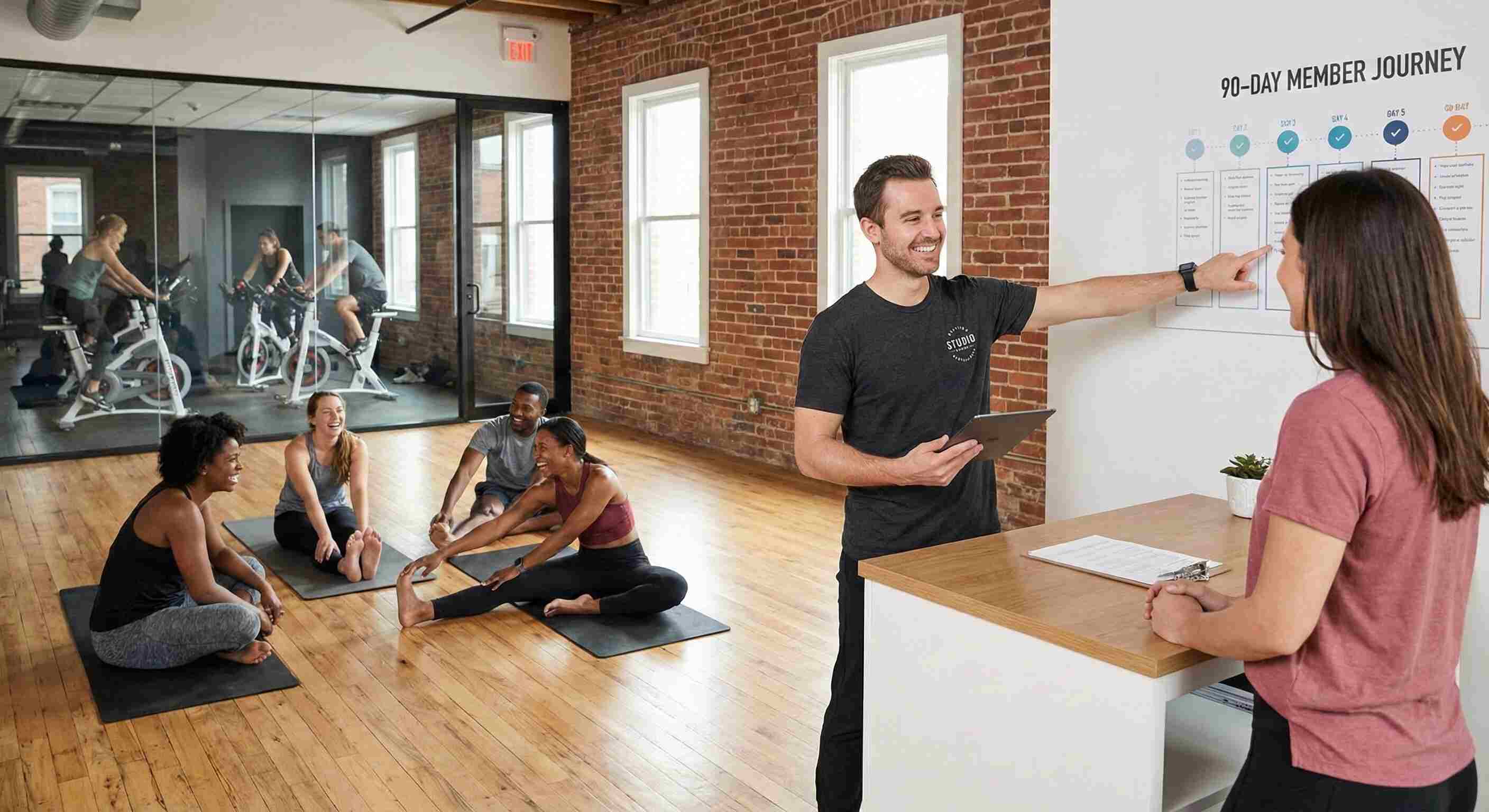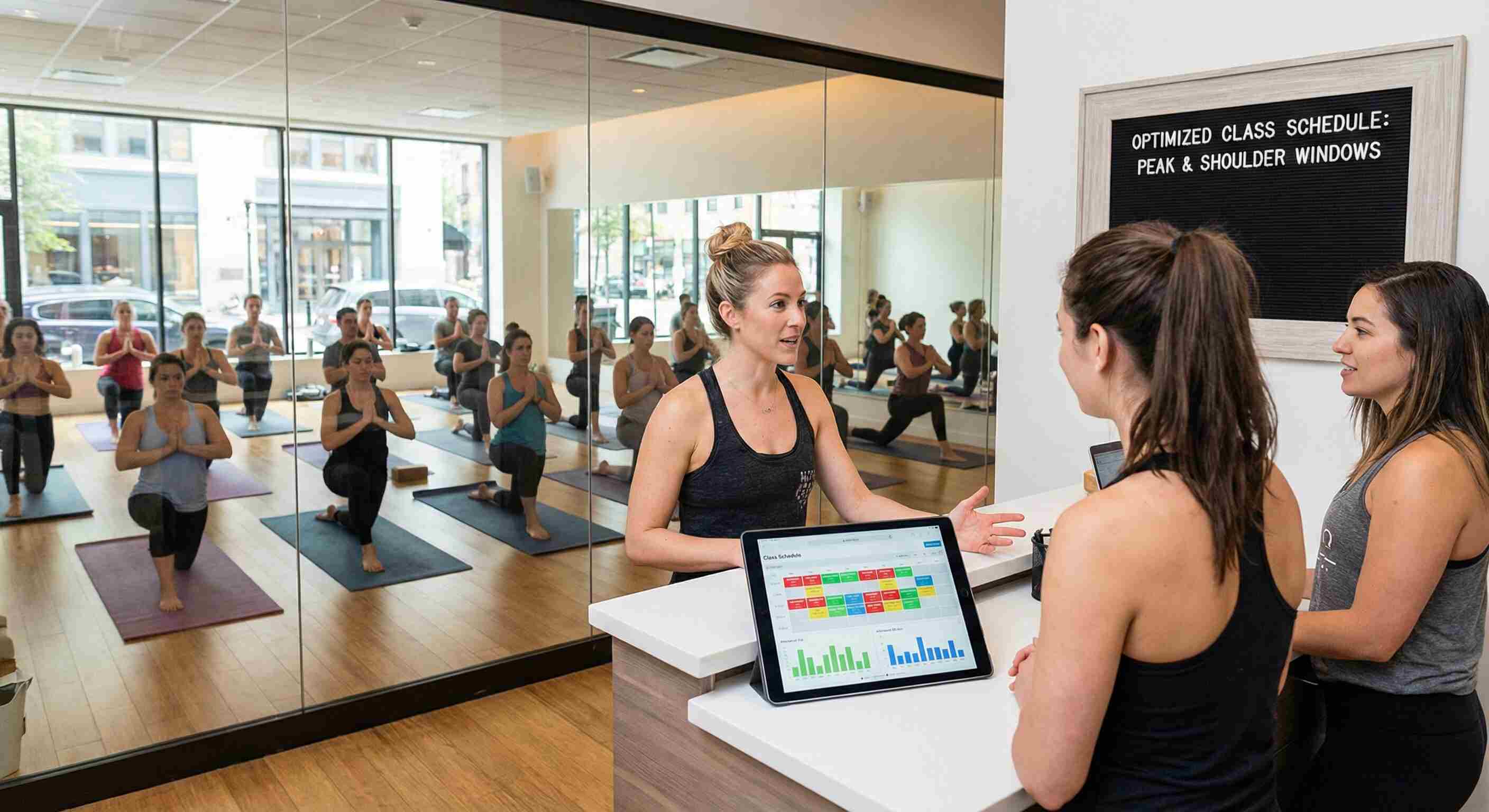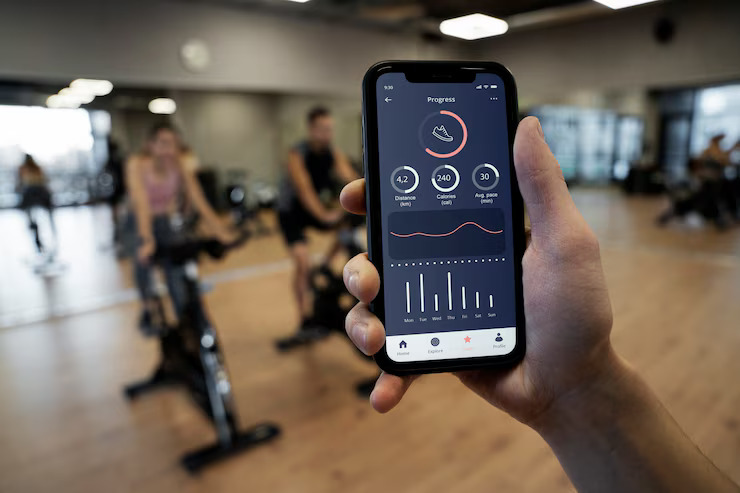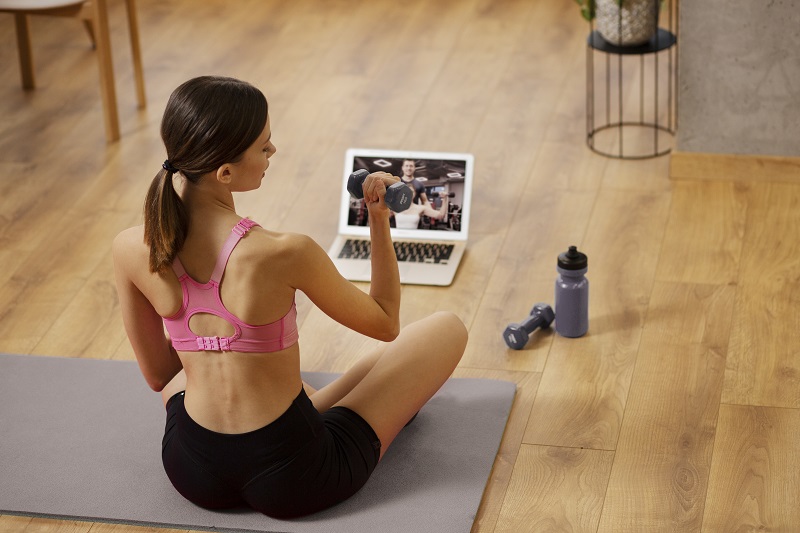
(+ 1 Bonus for Protecting Your Brand)
Running a boutique fitness studio isn't just about creating incredible workouts—it's about building a business that's legally sound and financially secure. Without the proper agreements in place, you're leaving yourself open to risks that could cause major problems down the road. Let's make sure you're covered.
Here are the five must-have legal agreements for every studio owner, plus a bonus tip for locking in your brand identity.
1. Liability Waiver & Release Form
Let's be real—fitness injuries happen. Whether it's a misstep in a HIIT class or a strain during a yoga session, you don't want to be held legally responsible. A Liability Waiver & Release Form protects your business by ensuring clients acknowledge the risks of physical activity and agree not to hold you liable. Make sure it includes:
- An explicit assumption of risk
- Release of liability
- Indemnification clause
- Voluntary participation statement
Every client should sign this before their first session—no exceptions. Having this agreement in place provides peace of mind and can deter costly lawsuits. It's not about avoiding responsibility; it's about ensuring that clients understand the inherent risks associated with exercise.
Don't skip on this. To make this as airtight as possible, consult a lawyer specializing in fitness industry contracts. It's also a good idea to periodically review your waiver to ensure it's up to date with current laws and best practices.
2. Membership Agreement
Have you ever had a client dispute a charge or try to cancel outside your policy? That's where a solid Membership Agreement saves the day. This agreement sets expectations from the start and helps you avoid conflicts over payments, cancellations, and refunds. It should outline:
- Payment terms (monthly, annual, auto-renewal policies)
- Cancellation and refund policies
- Studio rules and expectations
- Liability disclaimers and conduct guidelines
This document ensures everyone is on the same page from day one and keeps your revenue stable. Clients should have to agree to these terms before signing up, whether in person or through your booking software. A well-crafted membership agreement will also protect you from chargebacks and disputes, keeping your finances on track.
One pro tip: Make sure your membership agreement includes a clause about studio closures or unexpected disruptions (like a pandemic or natural disaster). Having this in place means you're not scrambling to explain policies if the unexpected happens. It's also a good idea to post these on your website under a policies hyperlink.
fitDEGREE can support your Studio Fitness
3. Staff Agreement (for Employees & Contractors)
Whether your trainers are employees or independent contractors, you need clear agreements in place. A Staff Agreement should cover:
- Compensation structure
- Class schedules and responsibilities
- Non-compete and non-solicitation clauses
- Liability coverage
- Termination policies
This protects both you and your team, avoiding misclassification issues, disputes over pay, and the dreaded situation where an instructor leaves and takes half your clients with them. If you're hiring employees, be clear about benefits, expectations, and termination policies. If you're working with independent contractors, make sure you specify that they're responsible for their own insurance and taxes.
A solid staff agreement also sets the tone for your company culture. It can include expectations about professional conduct, dress code, and even social media behavior when representing your brand. The more clarity you provide upfront, the fewer headaches you'll have later.
4. Rental/Lease Agreement (if leasing a space)
Your studio's location is its home base, and the last thing you want is unexpected rent hikes or landlord disputes. A solid Rental/Lease Agreement should clearly define:
- Lease duration and renewal terms
- Rent payment structure (including potential increases)
- Maintenance and repair responsibilities
- Subleasing options (if applicable)
- Exit clauses and penalties
Negotiate wisely—this agreement directly impacts your bottom line. Before signing anything, have a lawyer review your lease. If you take nothing else from this article, please have a contract attorney review your lease before you sign it. As a coach, some of the biggest problems I see revolve around lease agreements gone wrong, so take care here.
If you want to make extra money by subleasing, you need that in your lease as well because it is often excluded and could get you in trouble if you try to step around it. Lastly, make sure there aren't clauses in your lease that could force you out unexpectedly. You don't want to invest in branding and renovations only to find out your lease isn't being renewed.
5. Partnership Agreement (if applicable)
Going into business with a partner? Get it in writing. A Partnership Agreement sets expectations from the start, covering:
- Ownership percentages
- Roles and responsibilities
- Profit distribution
- Decision-making authority
- Exit strategy or buyout terms
Skipping this step can lead to painful conflicts down the road which is another common area I see studio owners get trapped during our work together. Protect your partnership before issues arise. It's easy to think that nothing will go wrong when you're in the early honeymoon stages of building your studio, but partnerships quickly become complicated if roles aren't clearly defined.
Outline what happens if one partner wants out, how financial responsibilities are split, and how major business decisions will be made. A handshake agreement isn't enough—make sure everything is documented.
Bonus: Trademark Your Studio Name & Branding
Your brand is one of your most significant assets. But if you haven't trademarked your studio's name, logo, or signature programs, you're at risk of someone else claiming them. A trademark ensures you have exclusive rights to your brand identity, preventing others from using or copying it.
Imagine spending years building your studio's reputation, only to find another gym down the street using your name. Without a trademark, you'd have little legal standing to stop them. By securing a trademark early, you're protecting your studio's long-term value. Learn more here.
What's Next?
Legal agreements aren't the most exciting part of owning a studio, but they're non-negotiable if you want a business that thrives long-term. If you don't have these contracts in place yet, now's the time to fix that.
Start by reviewing your agreements, making any necessary updates, and consulting with a legal expert if needed. Your future self (and your business) will thank you.















.jpg)












.jpg)









.jpg)










































.jpg)



























